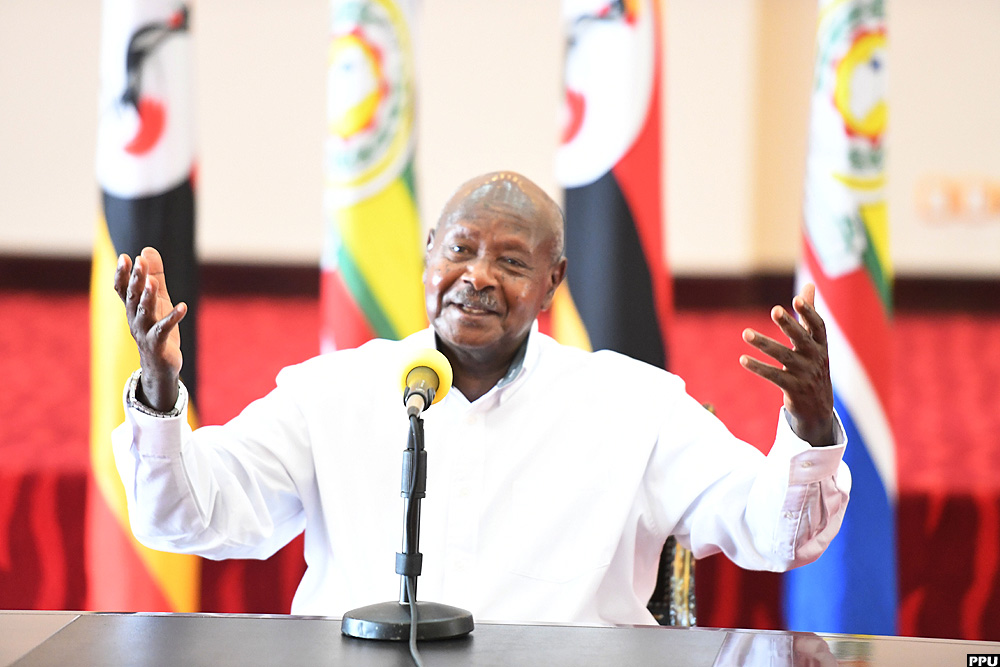Stretching back from 1971 to 1979, Ugandans witnessed relentless terror under former Uganda’s President Iddi Amini under he’s brutal rule, He was responsible for widespread human rights abuses and violence during his regime. However, it is challenging to provide a specific number of individuals he personally ordered to be killed. Estimates of the number of people killed during Amin’s rule vary, and many incidents remain undocumented.
Amin’s regime was characterised by political repression, arbitrary arrests, torture, and extrajudicial executions. Thousands of Ugandans, including political opponents, intellectuals, and members of various ethnic groups, were targeted. The brutality of Amin’s rule has left a dark legacy in Uganda’s history.
Uganda’s struggle 1981- 1986
Museveni went to the bush and initiated the armed struggle with the belief that it was necessary to address political repression, ethnic tensions, corruption, and economic mismanagement under the existing government. The armed struggle eventually led to the overthrow of Milton Obote’s government and Museveni’s assumption of power in 1986.
Five Years of Gun Silence 1986- 1992
When Yoweri Museveni assumed power in Uganda in 1986, the country had experienced years of political instability, economic challenges, and social unrest under previous regimes. Museveni’s leadership marked a period of significant changes, and life in Uganda during the initial years of his presidency (1986-1992) was characterized by both challenges and positive developments such as Reconstruction and Stability, Economic Reforms,Social Services and Infrastructure, Land Reforms, Return of Exiles, Reconciliation Efforts,Security and Law Enforcement and Democratization Process,
In the Pursuit of Democracy-1992-1996
Uganda underwent significant political changes in the early 1990s, leading to the preparations for the first multiparty elections and the promulgation of a new constitution in 1995. These developments marked a transition from the no-party political system to a multi-party democracy and Constitutional Review Commission (CRC) was formed to organise a peaceful elections for almost first time without guns and violence.
Achievements and failures of President Museveni and NRM to-date.
President Museveni has overseen a range of achievements and faced various challenges during his tenure, Over the past 38 years, Uganda has witnessed Economic Growth through reforms, including liberalization and privatization policies which has subsequently contributed Uganda’s GDP from 3.52 billion in 1985 to $114 billion in 2023.
International criticism
President Yoweri Museveni of Uganda has faced international criticism on various fronts, with concerns raised by international organisations, governments, and human rights advocates including on key matters of Democratic Governance and Political Freedoms, accusing he’s government on freedom restrictions of he’s political opponents such as The removal of presidential term limits in 2005 and and claim subsequent elections have been controversial, with accusations of a lack of a level playing field for opposition parties.
Human Rights Violations:
Museveni has been widely reported for human rights abuses, including arbitrary arrests, use of excessive force by security forces, and suppression of political opposition. and these Concerns have been raised about the treatment of opposition leaders, activists, and journalists.
Freedom of the Press:
Uganda government has been accused as spearhead of violation of Press freedom and has faced challenges, with accusations of censorship, harassment of journalists, and closure of media outlets critical of the government, International organizations have expressed concerns about the shrinking space for independent media
Electoral Irregularities:
International observers have raised concerns about electoral irregularities in various elections, including allegations of voter intimidation, irregular voter registration, and lack of transparency in the electoral process
Corruption:
Corruption within the government has been a persistent issue. Critics argue that corruption undermines governance, hampers economic development, and contributes to inequality
Land Disputes and Forced Evictions:
Land-related conflicts and forced evictions in certain regions have attracted international attention. Critics argue that government policies have led to displacement and violated the rights of communities.
Role in Regional Conflicts:
Uganda’s involvement in regional conflicts, such as its participation in the Democratic Republic of Congo (DRC) and South Sudan, has been a subject of international scrutiny. There are concerns about the impact of Uganda’s actions on regional stability.
Election-Related Violence:
Elections in Uganda have been marred by incidents of violence, and the government’s response to protests and demonstrations has faced criticism for alleged excessive use of force.
Restrictions on Civil Society:
There have been accusations of restrictions on civil society organizations and limitations on their ability to operate freely. Laws regulating non-governmental organizations (NGOs) have been criticized for their potential impact on the work of civil society.
Published by Adolph Muhumuza.

